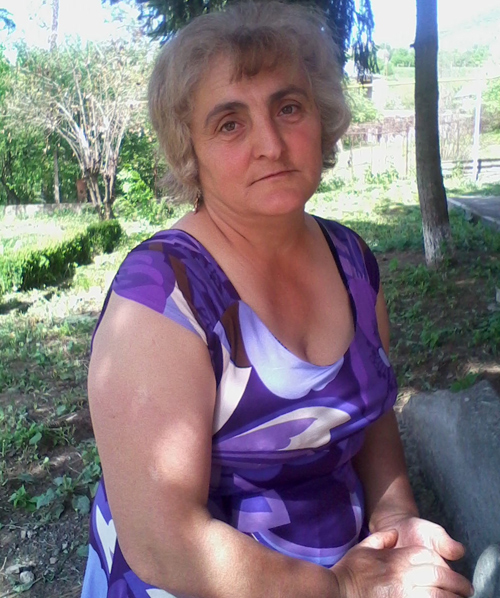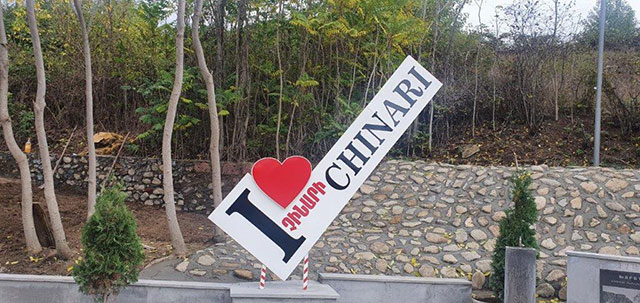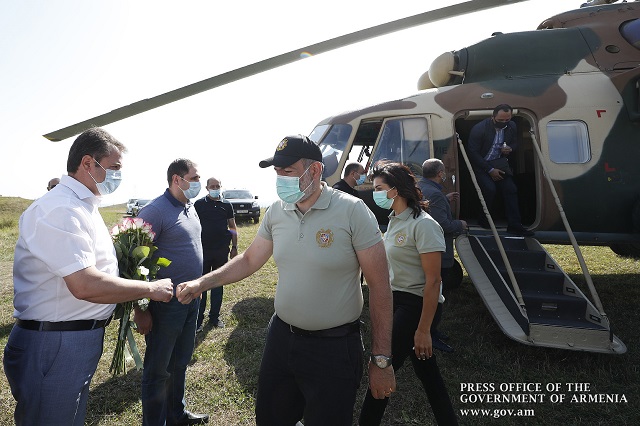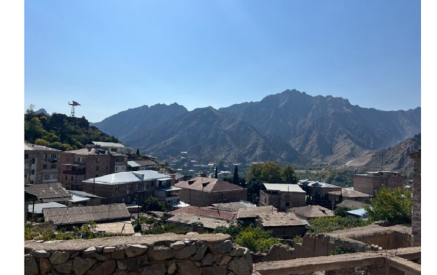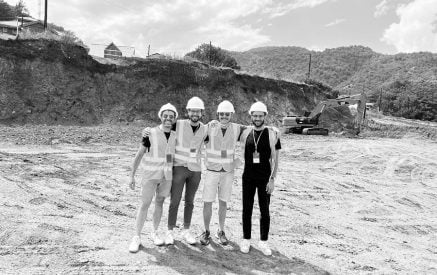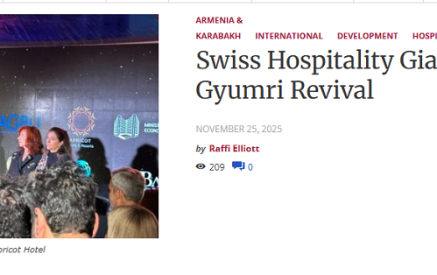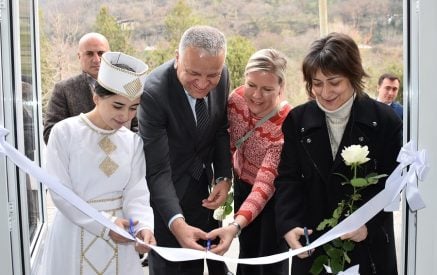In border village of Chinari, life is spent in the basements
“We are trying to live fearless, I am turning on the music during shootings, I turn on the lights so that the enemy knows that we are not in panic, anyway, it’s all the same, I worry that something will happen and at the sound of every shot I think that the war will begin,” tells the inhabitant of border village of Chinari of Tavush Marz, Knarik Saghoyan, in the conversation with Aravot.
No matter the peaceful population of these bordering villages is living with rules over years, they do not turn on the lights in their houses, and are trying to avoid walking by visible roads, smoking in the streets when its dark to escape from being visible by the enemy, anyway, Mrs. Knarik and other residents of the village are working on their backyard land plots and fields during the day time by asking for God’s protection. Mrs. Knarik, who is living alone for 5 years after the death of her husband, has four children. Her house is in the village, directly under the target of the enemy. None of her children is beside the mother, the mother wanted the children to leave the village for the sake of their safety. She does not want to have the next loss. One of Mrs. Knarik’s sons is serving in the Armenian Army and will be discharged in a month. In the conversation with us, Mrs. Knarik told that her husband was killed by an enemy bullet when he was trying to rescue the life of a child who was also injured by the shooting of Azerbaijani soldiers.
“I am both a woman and a man. I am in the back of my kids. I will not abandon the house built by my husband, if I leave today, the other one tomorrow, the whole village is be deserted, then let’s give the village to the enemies and leave,” says Ms. Knarik. She told that one of her sons left for Russia because of no job in the village, the other children are in the capital.
Read also
Mrs. Knarik said, “I have told my son to go to work and make a family, I don’t want him to bring my daughter-in-law here and make her sit under the bullets. As long as I am living, I will not leave my children to live at stake. As long as I am living, I will do everything to make their lives safe. And I will not leave the village because of my husband’s grave is here, and the house built by my husband. I cannot quit everything and leave.” Mrs. Knarik, when working on her land plot like her fellow-villagers, when there are no shootings and all is quiet, worries lest the enemy is thinking about something. “At work, I’m thinking, “Oh, the Lord God, if they shoot”, but again I gather my strength and try to live on. But sometimes, when the days are peaceful, I am thinking, “Shall we live so peacefully every day?”, but it is just a hope.”
In the conversation with us, Mrs. Knarik told that her day begins in the morning at 7:00 am with a cup of coffee with her neighbors and pass to village works.
During our days spent in Chinari village, we noticed that during these years the villagers had been accustomed to the shooting rhythm that they are finding shelter like one person. During the alarm, the children are immediately moving to a safe place in the schools and kindergartens. Animal husbandry in the border villages, which is the main occupation of the villagers, is not developing, the farmers are unable to take the animals to pasture or collect hay to feed them.
Generally, the life in bordering areas is spent in the basements. People are afraid of going to the second floor of their houses to avoid appearing in the target of the enemy.
ANUSH MATEVOSYAN




















































